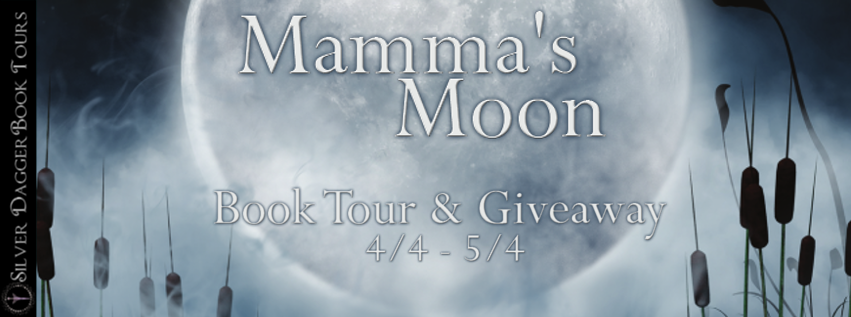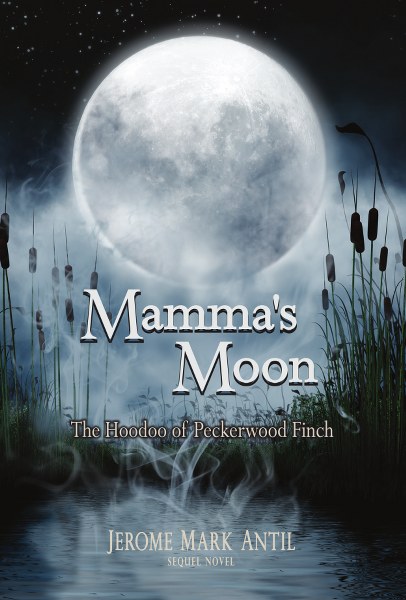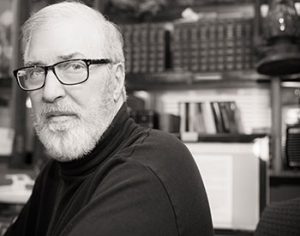Mamma's Moon by Jerome Mark Antil Book Tour and Giveaway :)
Mamma's
Moon
The
Hoodoo of Peckerwood Finch
by
Jerome Mark Antil
Genre:
Thriller
"Jerome
Mark Antil's Mamma's
Moon does
for Acadiana what Truman Capote did for Tiffany's or Tennessee
Williams did for streetcars. This is a novel about a lot of things,
including sex, crime, life, and death. But most of all, it's a novel
about hope and about love.
Mamma's
Moon gives the reader a dramatic and insightful glimpse into the very
special world of today's Louisiana French Acadians, whose early
tragic history was immortalized by Henry Wadsworth Longfellow in his
classic poem, Evangeline,
even before the heartless bayou's more contemporary history was
buried deep and forgotten." Tom Hyman (LA
Times bestselling
author: writer for LIFEmagazine, The
Saturday Evening Post, Argosy, Washington
Post Book World and New
York Magazine.)
This
novel, Mamma's
Moon, is
a sequel to the novel, One
More Last Dance. It
stands alone as an entirely self-contained story, but for those of
you who may not have read the earlier novel, I include here a brief
description of the main characters and of the events that preceded
this story.
A
bond that can only happen on a dance floor happened in a cafe off
Frenchman Street among four unlikely characters: a man who was about
to die; his friend, an illiterate Cajun French yardman; and two of
the most successful women in New Orleans.
Aging
Captain Gabriel Jordan, retired, was given two months to live, three
months before he met "Peck"--Boudreau Clemont Finch--a
groundskeeper on the back lawn of his hospice on Bayou Carencro,
Louisiana. It was at the hospice that Gabe told Peck his dream of
seeing the Newport Jazz Festival before he died. They became friends,
and Peck offered to help grant his wish by taking him there.
And
they began their journey.
It
quickly became a journey with complications and setbacks. They saved
each other many times, but they were in turn saved by two
extraordinary women: Sasha (Michelle Lissette), a real estate agent
in New Orleans's posh Garden District, and her best friend, Lily Cup
(Lily Cup Lorelei Tarleton), a criminal attorney.
Less
than a year before the events in Mamma's
Moon, Gabe
and Peck wandered into Charlie's Blue Note, a small jazz bar in a
side alley just off Frenchman Street, where the music was live and
mellow and the dancing warm and sensual.
Here
they encountered Sasha and Lily Cup, and amid the music, the dancing,
the food, the flirting, and the cigar smoke, the four formed an
unusual and lasting friendship that would see them each through a
series of crises, disappointments, life-threatening situations, and
moments of great joy and satisfaction.
Chapter
3 What
a Night, My Brother
Quelle
nuit, mon frere
The seven fifty–five streetcar whined its hum behind them, rolling off into the night. They stepped through the gate of the Columns Hotel, brightly aglow with floodlights washing its historic columns and walls of porcelain white majesty. “Isn’t it magnificent?” Gabe said. “Tres grand,” Peck said. “It looks big—I’m not sure how many rooms they have for hotel guests. Not many, I suppose—but I don’t know. It was a private home in its day.” They climbed the steps, pausing on the landing surrounded by various size tables with linen cloths, some couples silhouetted by the moonless night chatting and holding their drinks, as in a Toulouse Lautrec print. “My brother, would you prefer sitting here on the patio in the night air or inside?” Peck didn’t answer. “We might talk better inside,” Gabe said. “Night folks congregate in the bar or out here. Let’s take our chances in the front room.” A server carrying a tray of drinks told them to find a table—she would be back to take their order. The smaller parlor room that Gabe preferred had a front window with dark-stained indoor shutters that dated back a century. Bay and framed, the window looked on St. Charles Avenue and its glass pane height rose from the floor to a twelve or fourteen–foot ceiling. Romantics like Gabe could imagine children of the 1800s who were supposed to be taking their naps sitting on the floor in the bay, watching the parade of horses, carriages, and streetcars going by. The table was for four, but he and Peck sat on both sides of a corner V with an avenue view, their backs to the next room with its round red leather settee and an ornate, wood-carved barroom behind that. Peck reached out and rested his hand on Gabe’s. “Quel problème avez–vous, mon ami?” (“What trouble are you in, my friend?”) “My brother,” Gabe said, “I know as sure as I’m born when you speak with the French, you have something special on your mind. I only made out the word problem—and I’m here for you. What problem do you have—let it out, my brother.” “Nah, nah…not me. What trouble you in, frien’?” Peck said. Gabe reeled his torso, eyes wide, mouth open, caught off–guard. He pointed to the seat across from him. “Sit over there, son, so I can look into your eyes.” Peck got up, moved, and sat again. “Just what do you know about so–called trouble you speak of, my brother? What exactly have you heard?” “I’ve heard nothing, cher. I see plenty. You in trouble old frien’— tell Peck about it.” “I’ll be damned. I swear. I spend a lifetime in the army learning to be aware of things around me, and never in all those years—not one time—have I seen the likes of anyone close to having your sense of observation and awareness. My brother.” The waitress came to the table about to interrupt. Gabe interrupted her first. “Honey, bring us two shrimp and grits; one crawfish etoufee that we’ll share. Bring a couple of spoons, if you will, and two small plates and start us with a couple of long necks and keep the beer coming. A streetcar is our driver tonight.” “Thank you, sir,” the waitress said. Gabe waited for her to step away, turned his head and looked Peck in the eye, while leaning in over the table. “Okay, sure,” he said. “I’ll tell you my story. But first you tell me how you found out.” “Lily Cup,” Peck said. “Hogwash,” Gabe said. “She’s a total professional. She wouldn’t say a word.” “Lily Cup at the house,” Peck said. “Not buying it. She’s been to the house before. What gave you the idea there’s trouble?” “Her satchel by the door,” Peck said. “If no trouble, satchel would be in her car. She took it into the house. Only could mean trouble for my frien’.” Gabe sat back. “The eyes of a fucking bald eagle,” Gabe said. He inhaled and exhaled, rubbing his chin and shaking his head as if he was letting it sink in. Peck’s keen observation picked up the scent of trouble just as if the boy were on a pirogue in a bayou swamp tracking gator for bounty or turtles for soup. He leaned in once again and lowered his voice. “I killed a lad today, I surely did. He couldn’t have been twenty, maybe twenty–two. Killed him deader than a cold mackerel. Now old Gabe is in trouble with the law, and with the Almighty. That’s the mess I’m in, son.” Peck reached across the table and held his hand again. “Tell me. When? Where?” said Peck “This morning, after you left for your meeting at Tulane. Thought I’d stretch my legs on Andrew Higgins Boulevard. I took a streetcar over to Lee Circle for a look at the World War II museum; thought maybe I’d sit with my coffee on the park bench and have a chat with the bronze of President Roosevelt. I stepped from the streetcar and was crossing St. Charles. There was no traffic, and I remember taking my time looking up at the tree branches and wires still draped with strings of beaded necklaces from Mardi Gras hanging from them. I remember thinking it must be they get caught in trees when they’re thrown from the parade floats. That’s about when he came up—the kid.” “Behind you?” Peck asked. “No—straight on from in front of me. I remember when I caught his eye he was smiling a big, cold smile. He pulled a knife from under his shirt—I’d say six, eight–inch blade. He walked toward me grinning and smiling, pointing and poking the knife at me and he kept repeating, “Wallet…give me your fucking wallet, old man… wallet…your fucking wallet…” “What’d you do?” “I lifted my stick with both hands and turned sideways—took a stance. I poked the tip at his eye. I missed his eye but I hurt him. Then I reeled and slammed the back of his upper calf with my stick like a baseball bat and took him down, but he didn’t drop the knife. He grabbed my shirttail in his hand and swiped up at me, cut my shirt—took a button off, and that’s when I did it. God judge me, I could only see red. I turned the stick around and struck his head. I remember bashing again and again—hearing and feeling it hit his skull, and I don’t remember anything after that, but that someone grabbed me and held me until I came to.” “He was dead, cher?” “I didn’t look—but he was dead.” “People see?” “That’s for damn sure. A cop cuffed me, put my cane in his trunk and drove me to the station. He was a vet, a brother. He called Lily Cup for me while he drove. She was at the station waiting when we got there.” “Mais vous essayiez seulement de vous defender,” Peck said. (“But you were only trying to defend yourself.”) “You saying self–defense? Lily Cup said the DA could build a case proving the boy was defending himself from me. It’s a pickle. Tomorrow I have to hear the second-degree murder charges against me. A big dill pickle.” The waitress served them. Both men paddled their forks through the tastes of the town. Family secret ambrosias of red sauce warming the shrimp and grits made things all right. “All right” in the Big Easy is when the tastes of the food to the palate can make you forget all else, at least for the moment. “Peck, can I ask you something personal? You don’t have to answer if it makes you uncomfortable.” “Ax,” Peck said. “I was thinking about Millie—you know, her wanting to meet your mamma. What can you tell me about your youth, son? We never talk about it. How far back do you remember?” Peck placed his fork in the bowl and sat back. “If it’s uncomfortable, we’ll drop it,” Gabe said. “I grow’d at Bayou Chene—there and Petit Anse Bayou, ‘tween Bayou Sorrel and Choctaw. Foster nanna is all I remember. There was gator man. Gator man belt-strapped me good if I dropped the bait shrimp buckets. I had to scoop shrimp and carry the buckets until his pirogue was full. He’d sell bait to tourists at the fishing docks.” “How old were you?” “I couldn’t swim is what I remember.” “Did he pay you?” “Nah, nah…he’d dog collar me around my neck and chain me under porch back of his house. I worked, is all.” Gabe sat silently. “My foster nanna would tell me gator man was lar’ning me and to see I mind him good. He’d tow me for gator bait. When the moon come out, I’d look up near all night pretending the moon was my mother looking down and I’d talk to her and promise her I was a good boy and no trouble, and I’d be quiet and behave if she ever come back. I talked to the moon.” “She heard you, son. Your mother heard every word, I’m certain of it.” “What do I tell Millie? Peck is scared she will run away when she knows I don’t know my own mamma.” “Millie may still hug her baby doll, but she’s a stronger woman than you think, son. Spoon some etoufee and let me think a minute. I need to think.” The lobby of the hotel and both party rooms to its left were empty. The front desk was an ornate wooden antique table—a man sitting behind, chin in hand, dozing off. Someone was at the piano in the bar among the laughter and an occasional cheer of a celebrated moment. “Peck, you owe it to your Millie,” Gabe said. “Tell her the truth.” “Hanh?” Peck grunted. “The problem is, this took place long ago in your life. It’s impossible for you to remember the real truth—the whole story.” “What you sayin’, Gabe?” “I’m saying you have to go back to that Bayou Chene—or wherever—and find out for yourself. When you know the truth, that’s when you can tell Millie the story. She’s strong. She’d never be afraid of the truth coming from you. That woman loves you so much, but it’s up to you to learn the truth—if not for her, for your children.” “I love her too, frien’, just as you say—so much.” “It’s settled. You’ll go search it out, my brother.” “I’ll go, I surely will—in the morning,” Peck said. “You’re a strong man, son. Look them straight in the eye—don’t let anybody frighten or intimidate you.” “I’m not scared no more.” “You have some weeks before night school starts,” Gabe said. “Take any time you need to get the answers.” “Gabe, can I ax you something?” “Anything, my brother.” “Why did that boy with a knife smile?” “What?” “You say he kept smiling at you? Why did he smile at you like that?” Gabe picked up his beer. “Where you know the boy from?” Peck said. “A body don’t smile at a stranger. He only smiles when he knows him. Where you know him from?” Gabe set his beer down. “Remember the day I went to have keys made for the house?” Gabe said. “I remember. You wanted to walk.” “I was in Walmart. At the key-making machine and next to it was another tall vending machine. The same kid was at that one next to me, working it.” Gabe described how the kid pressured him for his credit card and then threatened to kill him when he refused to provide it. “What’d you do?” Peck asked. “I’ve never been so street-scared. I’m not agile or strong like I once was. I found the manager and told him. He said he’d walk me to the streetcar. Outside he asked me if I could recognize the kid and I told him yes, if I saw him again. We stopped for a light and when I turned there he was—the kid waving a knife. He was leaning on a bicycle looking me in the eye, waving his knife. ‘That’s him,’ I told the manager. ‘That’s him.’ The manager told me to stay put and he turned and ran toward the guy, yelling and waving his arms until the kid pedaled away in a scoot. The manager walked me to the streetcar and waited until I boarded.” “So that’s why you started walking with a cane, cher?” “Learned self-defense with one in the army.” “You’re innocent,” Peck said. “Tell Lily Cup the story, cher. Tell her to find the manager and get the videos. They’ll have one.” “I’ll be damned,” Gabe said. “All the proof you need, frien’,” Peck said. Video—it’s how we catched that robber man in Kentucky on the motorcycle, remember?” “How can I forget that night?” “Innocent, my frien’. Tell the story to Lily Cup.” “When are you going back to learn the truth, my brother?” “To see my foster nanna?” “To learn the truth,” Gabe said. “Tomorrow, I promise. I clean offices tonight. I’ll head out tomorrow.” “Let’s get some pecan pie and call it an evening,” Gabe said. “What a night, my brother. A guardian angel brought you to me.” Gabe caught the waitress’s eye and indicated dessert and coffee for both. He looked at the ceiling and into the heavens. “Thank you, Butterfly—thank you, my darling.” “Butterfly?” Peck said. “Butterfly, my brother. Butterfly was my girlfriend, my lover, my wife, and the mother of my son…longer than I can ever remember. Now she’s my guardian angel—my Butterfly.”
JEROME MARK ANTIL writes in several genres. He has been called a “greatest generation’s Mark Twain,” a “write what you know Ernest Hemingway,” and “a sensitive Henry Wadsworth Longfellow.” It’s been said his work reads like a Norman Rockwell painting. Among his writing accomplishments, several titles in his The Pompey Hollow Book Club historical fiction series about growing up in the shadows of WWII have been honored. An ‘Authors and Writers’ Book of the Year Award and ‘Writer of the Year’ at Syracuse University for The Pompey Hollow Book Club novel; Hemingway, Three Angels, and Me, won SILVER in the UK as second-best novel.
Foreword’s
Book of the Year Finalist for The Book of Charlie – historical
fiction and The Long Stem is in the Lobby – nonfiction humor.
Library Journal selected Hemingway, Three Angels and Me for best
reads during Black History Month.
Before
picking up the pen, Antil spent his professional career writing and
marketing for the business world. In this role, he lectured at
universities - Cornell, St. Edward’s, and Southern Methodist. His
inspirations have been John Steinbeck, Mark Twain, and Ernest
Hemingway.
Take
us behind the scenes – where did “One More Last Dance” and
“Mamma’s Moon” come from?
(Three
people inspired One
More Last Dance.
After he was given his Last Rights by the priest and the doctor gave
him two hours to live, I inspired a 94-year-old friend to get out of
his death bed, live a year and a half longer and write his book.
Another friend from the 1960s inspired my Gabe; a black man who
taught me jazz. My father, the third was second generation Acadian,
from Normandy, and a marvelous storyteller. Mamma’s
Moon was
inspired by an actual attempt on my life.)
What
will fans of the first book in this series, “One More Last Dance,”
enjoy about “Mamma’s Moon?”
(That
the characters they love from the original novel are alive and well.
They’ll like that the sequel is as strong or stronger than the
first novel – which is rare.)
What
can you tell us about your Acadian heritage and its influence on your
writing?
(I
knew our name was changed from Anctil to Antil when my grandparents
(on my father’s side) moved to the U.S. from Canada at the turn of
the twentieth century. I grew up in New York State, but my father
would always tell me stories about the Acadians in Canada and the
Cajuns of Louisiana, and he would have shrimp boils and make gumbos.)
Why
are you so passionate about honoring and preserving Louisiana’s
culture through writing?
(What’s
happening to Louisiana both from outside sources and internal power
control is criminal. Baton Rouge has literally become the rectum of
America with the Mississippi splitting it in half and along with it
the literacy and natural resources so mishandled the entire state is
sliding into the Gulf of Mexico. Try to find a full-grown Cypress.
You can’t. They been chipped and are stacked in “mulch” bags in
big box home store retailers.)
What
was your research process like? Specifically, how did you go about
investigating the culture of Louisiana? Did you learn something you
didn’t know previously?
(I
had a New Orleans young man interview icon Ms. Leah Chase. He asked
her several pages of my questions about life in New Orleans in her
lifetime. I asked the criminal court in New Orleans to help my legal
research and they assigned a criminal attorney to guide me. I spoke
with libraries there and got pointed at things of interest. I was
overwhelmed at the damage that has been caused to Louisiana by the
indiscriminate spillway levees that destroyed entire towns and all
the topsoil. A passenger plane crash that was forgotten about.)
You
wrote part of “Mamma’s Moon” while staying at the Pontchartrain
Hotel in uptown New Orleans where Tennessee Williams worked on “A
Streetcar Named Desire” – did absorbing the atmosphere there
strengthen your writing?
(I
wrote much of One
More Last Dance there,
and some of Mamma’s
Moon.
It absolutely inspired me knowing that Tennessee Williams lived
there, and Truman Capote frequented the bar. Hearing the streetcars
going by and the jazz in the lobby certainly inspired me.)
https://www.broadwayworld.com/bwwbooks/article/Antil-Launches-One-More-Last-Dance-Cajun-Style-20180107
Chef
Leah Chase is known in Louisiana – and around the world – as the
Queen of Creole Cuisine. How did you meet this iconic New Orleans
celebrity, and how did she help shape your book?
(My
wife and I ate at the famous Dooky Chase restaurant one evening after
a Barnes and Noble book signing. Leah invited us to the kitchen, and
we chatted, and I gave her a copy of my One
More Last Dance novel.
I wrote her a thank you letter. Six months later I hired a young man
I had met at the Pontchartrain to visit her and see if he could
interview her on my behalf. Leah welcomed him in with open arms and
sat with him for more than an hour.)
You
also turned to Orleans Parish Criminal Court Judge Laurie A. White
for some guidance. What role did she play while you were writing
“Mamma’s
Moon?”
(Judge
Laurie A. White played three important roles in the Peckerwood Finch
novels. She asked for attorney volunteers to guide me in my court
scenes. Attorney Lindsay Jay Jeffrey, at the Orleans District
Criminal Court spent countless hours helping me. Judge White had me
watch court in session for ideas and she also made suggestions to
easing the dialect in One
More Last Dance –
which has since been revised. Judge White will be narrating the audio
books of each novel.)
What
role did your daughter play in inspiring you to become a writer?
(She
asked me to write the bedtime stories I used to tell her, about
growing up during WWII. She also asked me to write a booklet for
fathers going through divorce. I wrote the very simple Handbook
for Weekend Dads and
it was a four-year Amazon bestseller in category. It’s been
purchased in every state and 17 countries. My wife Pamela encouraged
me to turn my stories into books.)
Your
favorite writers include Mark Twain, Sir Arthur Conan Doyle, Ernest
Hemingway and John Steinbeck. While we know these are some of the
greatest writers in history – what draws you to their work?
(John
Steinbeck for his historical integrity and sensitivity for human
nature in private moments. Hemingway has taught me most, the more I
write. He inspires me to ‘write what I 6
know’
– and talk the way people talk so they can read it. Mark Twain
taught me to graft short stories together into a novel. Doyle was
always an easy, fun read.)
When
you were a child, your family moved to Delphi Falls, New York, and
the land occupied by your boyhood home is now a state park. And soon,
there will be historical markers referencing you and your The
Pompey Hollow Book Club series.
What can you tell us about that?
(A
retired Syracuse University professor donated the near million
dollars to buy the land and make it a park. The two waterfalls are
the draw – but as I grew up there will be advantage to me and my
works as it is my childhood home. They will make my books available
there – and markers at key points (my campsite – my bedroom –
the rock we sat on. I’ll be attending an official opening.)
What’s
next for you? Will readers hear from Peck Finch again?
(I’m
writing about Tall
Jerry and the Delphi Falls Trilogy –
which are condensed novels that took place in 1953. I’m looking at
options for Peck and gang. I’m also several chapters into a novel
about America being taken over – but it frightened me enough to
step away from it awhile.
Follow
the tour HERE
for exclusive excerpts, guest posts and a giveaway!










Comments
Post a Comment